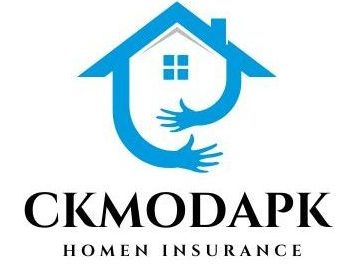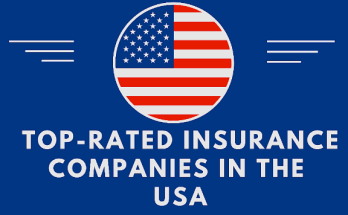1. Introduction: Understanding Hazard vs. Homeowners Insurance
Is Hazard Insurance the Same as Homeowners Insurance? – Many homeowners confuse hazard insurance with homeowners insurance, but they are not exactly the same. While hazard insurance is a part of a standard homeowners policy, it only covers specific physical damages to your home, whereas homeowners insurance provides broader protection, including liability and personal belongings.
This guide will clarify:
✔ What hazard insurance covers
✔ How it differs from homeowners insurance
✔ When you might need separate hazard coverage
✔ How lenders use hazard insurance
2. What Is Hazard Insurance?
Hazard insurance is a subsection of homeowners insurance that specifically covers damage caused by natural disasters and accidents, such as:
-
Fire & Lightning
-
Windstorms & Hail
-
Theft & Vandalism
-
Explosions
-
Damage from Vehicles/Aircraft
Key Features of Hazard Insurance
✅ Only covers the physical structure of your home (not belongings or liability)
✅ Often required by mortgage lenders
✅ May exclude certain perils (e.g., floods, earthquakes) unless added separately
3. What Is Homeowners Insurance?
Homeowners insurance is a comprehensive policy that includes:
-
Dwelling Coverage (Hazard Insurance) – Protects the home’s structure.
-
Other Structures – Covers sheds, fences, etc.
-
Personal Property – Insures furniture, electronics, and clothing.
-
Liability Protection – Pays for legal fees if someone sues you.
-
Additional Living Expenses (ALE) – Covers hotel stays if your home is uninhabitable.
Standard Homeowners Insurance Policies
| Policy Type | Coverage Details |
|---|---|
| HO-1 | Basic, limited named perils |
| HO-2 | Broad named perils |
| HO-3 | Most common; open perils for dwelling |
| HO-5 | Premium; open perils for home & belongings |
4. Key Differences Between Hazard and Homeowners Insurance
| Feature | Hazard Insurance | Homeowners Insurance |
|---|---|---|
| Coverage Scope | Only the physical structure | Home + belongings + liability |
| Required By | Mortgage lenders | Lenders & homeowners (optional) |
| Natural Disasters | Covers some (fire, wind) | May exclude floods/earthquakes |
| Liability Protection | ❌ No | ✅ Yes |
| Personal Property | ❌ No | ✅ Yes |
When Hazard Insurance Stands Alone
-
Some lenders require standalone hazard insurance for high-risk homes.
-
Condo owners may only need hazard coverage (master policy covers common areas).
5. When Is Hazard Insurance Required?
Hazard insurance is typically required in these situations:
-
Mortgage Lending – Banks require it to protect their investment.
-
High-Risk Areas – Homes in wildfire/hurricane zones may need extra coverage.
-
Vacant Homes – Insurers may only offer hazard coverage for unoccupied properties.
How Lenders Verify Hazard Insurance
-
You must list the lender as “mortgagee” on the policy.
-
Lenders can force-place insurance if you lapse on payments.
6. What Does Hazard Insurance Cover?
Included Perils
✔ Fire & Smoke Damage
✔ Windstorms & Hail
✔ Lightning Strikes
✔ Theft & Vandalism
✔ Falling Objects
Common Exclusions
❌ Floods (requires separate policy)
❌ Earthquakes (needs add-on)
❌ Normal Wear & Tear
❌ Pest Infestations
7. How Hazard Insurance Works in a Mortgage
-
Lender Requirements – Most mortgages require hazard coverage at least equal to the loan amount.
-
Escrow Payments – Many lenders bundle insurance into monthly payments.
-
Force-Placed Insurance – If you cancel your policy, the bank buys it (at a higher cost).
Example: $250,000 Home with a Mortgage
-
Minimum Hazard Coverage: $250,000 (loan balance)
-
Actual Policy: $300,000 (to cover rebuilding costs)
8. Do You Need Both Hazard and Homeowners Insurance?
✅ Most homeowners only need a standard HO-3 policy, which includes hazard coverage.
✅ Separate hazard insurance may be needed if:
-
You own a vacant property.
-
Your lender requires additional wind/flood coverage.
Cost Comparison
| Insurance Type | Average Annual Cost |
|---|---|
| Homeowners (HO-3) | $1,200 – $2,500 |
| Standalone Hazard | $800 – $1,500 |
Is Hazard the Same as Homeowners Insurance?
Many homeowners and buyers are confused about whether hazard insurance and homeowners insurance are the same thing. While they are related, they are not identical. Hazard insurance is actually a specific component of a standard homeowners insurance policy that covers damage to the physical structure of your home from certain disasters like fires, storms, or vandalism.
A full homeowners insurance policy goes beyond just hazard coverage to include protection for your personal belongings, liability coverage if someone gets hurt on your property, and additional living expenses if you can’t stay in your home after a disaster. Understanding this distinction is crucial when selecting coverage and working with mortgage lenders who often use the term “hazard insurance” in their requirements.
What Is Another Name for Hazard Insurance?
Hazard insurance is sometimes referred to by different names in the insurance industry and mortgage lending process. Here are the most common alternative terms you might encounter:
-
Dwelling Coverage
-
This is the most accurate alternative name, as it specifically refers to the part of your homeowners policy that protects the physical structure of your home.
-
Mortgage lenders typically require this coverage amount to equal at least the loan value or replacement cost of the home.
-
-
Property Insurance
-
Some insurers use this broader term, though it can sometimes include coverage for other structures and personal property.
-
In commercial contexts, “property insurance” is more commonly used than “hazard insurance.”
-
-
Catastrophe Coverage
-
This term emphasizes the protection against major disasters like fires, hurricanes, or tornadoes.
-
It’s often used when discussing high-risk areas prone to natural disasters.
-
-
Peril-Specific Insurance
-
This refers to policies that cover only specific types of hazards (like windstorm or fire insurance).
-
Some homeowners in high-risk areas may need to purchase separate peril-specific policies in addition to their standard homeowners insurance.
-
What Is a Hazard in Insurance?
In insurance terms, a “hazard” refers to any condition or situation that increases the likelihood of a loss occurring. Insurance companies categorize hazards into three main types:
| Type of Hazard | Definition | Examples |
|---|---|---|
| Physical Hazard | Tangible factors that increase risk | Old wiring (fire risk), cracked foundation (structural risk) |
| Moral Hazard | Behavior that increases the chance of a claim | Arson, insurance fraud |
| Morale Hazard | Carelessness due to having insurance | Not maintaining a property because “insurance will cover it” |
Understanding these hazards helps insurers calculate risk and set appropriate premiums for coverage.
What Is Hazard Best Defined as in Insurance?
Hazard insurance is best defined as:
“The portion of a homeowners insurance policy that provides financial protection against physical damage to the structure of a home caused by specific named perils.”
Key characteristics:
-
Covers only the dwelling itself (not belongings or liability)
-
Typically includes 16 standard perils (fire, lightning, windstorms, etc.)
-
Required by mortgage lenders to protect their financial interest
-
Premiums are based on risk factors like location, construction materials, and age of home
Unlike full homeowners insurance, hazard coverage doesn’t protect against theft, personal liability, or provide living expense coverage.
Is Hazard Insurance Required?
Yes, hazard insurance is almost always required in these situations:
-
For Mortgage Borrowers
-
Lenders require it to protect their investment in your property.
-
The coverage amount must typically equal the loan value or replacement cost.
-
-
In High-Risk Areas
-
Homes in wildfire, hurricane, or flood zones often have additional requirements.
-
Some areas may mandate separate windstorm or earthquake policies.
-
-
For Certain Property Types
-
Condos may require hazard coverage for interior structures.
-
Rental properties often need specific hazard policies.
-
Even if you own your home outright, carrying hazard coverage is strongly recommended to protect your largest asset.
Hazard Insurance Quotes
Getting accurate hazard insurance quotes requires providing specific information about your property:
What Insurers Need to Know:
-
Home’s location (including flood zone status)
-
Year built and construction materials
-
Square footage and replacement cost
-
Roof age and type
-
Safety features (alarms, storm shutters)
Tips for Getting the Best Rates:
✔ Compare quotes from at least 3-5 insurers
✔ Ask about discounts for bundling policies
✔ Consider raising your deductible to lower premiums
✔ Maintain good credit (impacts rates in most states)
Average annual costs range from $800-$2,000 depending on home value and location risks.
Read More : Home Insurance Austin TX: The Ultimate Guide for Homeowners
9. Frequently Asked Questions (FAQs)
1. Is hazard insurance included in homeowners insurance?
✅ Yes, dwelling coverage in an HO-3 policy acts as hazard insurance.
2. Can I buy hazard insurance separately?
⚠️ Yes, but only for specific risks (e.g., wildfire coverage in California).
3. Does hazard insurance cover roof leaks?
Only if caused by a covered peril (e.g., hail). Wear-and-tear leaks are excluded.
4. Is wind damage covered under hazard insurance?
✅ Yes, unless you live in a hurricane-prone state (may require a separate deductible).
5. Can I remove hazard insurance after paying off my mortgage?
⚠️ Technically yes, but it’s risky—your home won’t be protected from disasters.
10. Conclusion
Hazard insurance is a component of homeowners insurance, not a separate product for most people. While lenders often use the term “hazard insurance,” they’re typically referring to the dwelling coverage portion of a standard policy.
Key Takeaways:
-
Homeowners insurance = Hazard + Liability + Personal Property
-
Hazard insurance only covers structural damage from disasters
-
Mortgage lenders usually require hazard coverage at minimum
Before purchasing, compare quotes to ensure you’re fully protected.




